As I made plans with friends the other day, I said, “I know my nap schedule makes meals and things harder to work with.” I’m a spoonie and don’t have a lot of health privilege. I have some but require a daily nap and don’t bounce back easily from stress. When I flew home from Chicago the other week, I slept 11 hours each day of the weekend and took 1.5-hour naps. For context, I usually sleep about eight or nine hours a night and nap for half an hour, max. But even on normal days, a nap is crucial.
When, where, and how I’ll be able to nap is at the forefront of my mind as I make plans with people. And my comment to my friends also reveals that I apologize for my body. In implicit and explicit ways, I say, “I’m sorry I’m like this. I wish things were different. Thank you for bearing with me.” I’m not engaging in what Sonya Renee Taylor dubs “radical self-love” in her book The Body is Not an Apology.
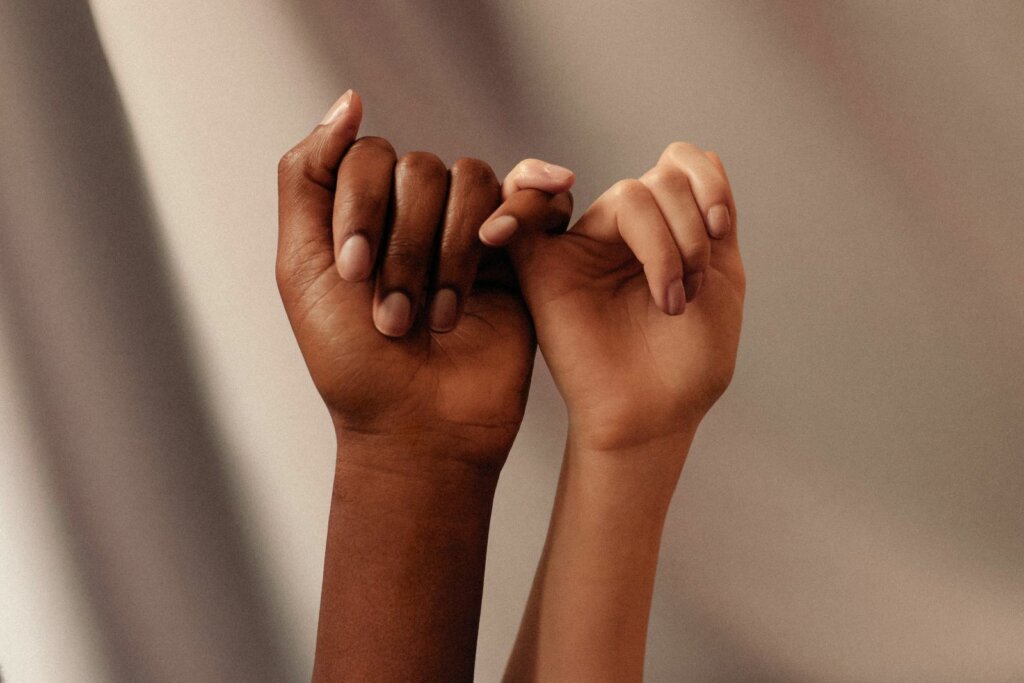
May we all make a promise to ourselves that we’ll stop apologizing for our bodies. Photo by Womanizer Toys on Unsplash
She says, “Concepts like self-acceptance and body neutrality are not without value. When you have spent your entire life at war with your body, these models offer a truce. But you can have more than a cease-fire. You can have radical self-love because you are already radical self-love.”
What she means is when we come into the world, we love our bodies. Babies are delighted by every part of their body. They look in the mirror and giggle or smile. No child starts off hating their body. That comes later when society barrages them with messages about how “wrong” they are for being too dark, too light, too tall, too short, too fat, too thin, too whatever. Or the converse: not enough. In our capitalistic, patriarchal, white supremacist society, there will always be something wrong with us because that’s how the systems keep running.
Under this toxic framework, which oftentimes feels overwhelming and permanent, it’s harder to blame a nameless, faceless system and instead, people turn inward and start blaming themselves. That’s when the apologizing begins. But Taylor asks some great questions: “What if we all became committed to the idea that no one should have to apologize for being a human in a body? … How might we change our lives? How might we change the world?”
I can think of lots of ways we’d change – like building wider airplane seats or ensuring every sidewalk corner has a curb cut. But on a more personal level, I can see how things could be different for me. In response to my body apology, my friends said, “Your nap schedule is not hard to work with at all! Honestly, it’s inspiring for both of us.” Their reply touched me deeply because the subtext was, “You’re not a burden. You’re OK just as you are. And we appreciate that you take care of yourself.”
It reminds me of that quote from the Buddha who said, “You yourself, as much as anybody in the entire universe, deserve your love and affection.” That means my body too. Not when it’s more energetic or more closely aligned with my idea of perfection, but now. In this iteration. Here. I can’t say I know exactly how to radically love my body – I suspect continuing to read Taylor’s book will help – but what I can do is be unapologetic about my body and that feels like a good place to start.
I dream of a world where we remember society will always tell us there’s something wrong with us. A world where we understand we can opt out of those messages. A world where we stop apologizing for our bodies because we realize they’re already lovely just as they are. A world where we practice radical self-love and treat ourselves as the precious beings we already are.
Another world is not only possible, it’s probable.
For the past almost two weeks I’ve had pain in the spot where my shoulder and neck meet. My chiropractor characterized it as a drum beneath her fingertips. It’s pulsing, it’s intense, and as much as I would like to think it’s only from sleeping weird, I know that’s not the case. The mind and body are connected with the body acting as a roadmap for my life. It marks the terrain.
When I shared with my close friend what’s happening with my body, they said it sounds like I’m in the in-between place of “I’m stuck,” and “I take my power back.” In the chiropractic model I use, network spinal analysis, there are 12 stages of healing. The stages are fluid and not hierarchal, meaning I could cycle from stage 12 to stage three to stage nine all in the same day.
Stage three is “I’m stuck,” and stage four is, “I take my power back.” I struggle with making that jump. I’m really good at being stuck. I repeat patterns over and over again. I find myself in places where I can’t seem to escape from. Taking my power back? Not an easy thing for me. I’d much rather give my power away to someone else. Someone else has all the answers. Someone else knows what I should do. Someone else is the key to my healing. And sometimes that’s true but there’s a difference between saying, “I’m choosing to see this person or take this course/class because it feels in alignment” and “Aaaaaah! I’m stuck, I’m stuck, I’m stuck, let’s try this thing and that thing and that thing. Throw spaghetti at the wall!”

Not a spaghetti picture but a powerful one! Photo by Ameer Basheer on Unsplash
I usually throw spaghetti at the wall. I’m really good at trying random things from a disempowered place. It’s easy for me to take action. It’s not so easy for me to believe in myself. And yet, that’s what I’m here to do. The two tenets of my spiritual practice are self-realization and service to the universe. What is self-realization?
According to my spiritual teacher, “[I]t is the natural wont of each and every living being to see others, not to see [themselves]. That is, whenever one becomes a subjective entity, [they take] others as an objective counterpart, but never the self as an objective counterpart. One’s subjectivity never merges with objectivity and that is the trouble. You want to know so many things but you never want to know yourself. Your ‘self’ is your nearest entity but you never want to know yourself. That is the pity, that is the trouble.”
By knowing the self, I don’t mean just what my favorite color is, or even what my hot-button issues are. Knowing the self means knowing my true self, the self that’s always here, witnessing everything. The calm, quiet, inner voice within that’s ready and willing to help me if I let it. My recovery mentor tells me frequently, “Higher Power is very polite and only goes where invited.” When I invite my Higher Power into my life, that is a form of taking my power back. It’s me saying, “I can trust my self. I can trust my self to lead me where I need to go, to show me what actions to take.”
Knowing the self doesn’t mean becoming egotistical, that you shut out other people and say, “I already know everything.” Instead, knowing the self and taking your power back means being an active participant in your life and recognizing that not only is life happening to you, but you are happening to life. Both are true. There are circumstances outside of our control but some things are not. How are we showing up for life? I, for one, want to take my power back.
I dream of a world where we recognize the wisdom in knowing the self. A world where we understand that doesn’t mean arrogance but rather a recognition that a force within us guides us, shows us, and inspires us when we’re willing to listen. A world where instead of being blown about like a leaf, we take our power back.
Another world is not only possible, it’s probable.
My body has been through the wringer in the past week. I was in Zion National Park until Wednesday and wow was it grueling for me. I don’t sweat easily or profusely and as a consequence am prone to heat-related issues like heat stroke and heat rash. Luckily, I avoided the former in the 104-degree weather but contracted the latter. My forearms and upper thighs are covered in tiny, angry, red bumps.
Also, I hiked the Narrows, which is a gorgeous trail through a slot canyon. The trail requires hiking through a river upstream and maneuvering large, slippery rocks. I rented hiking boots, neoprene socks, and a hiking pole to help me navigate but I injured my right big toe, despite my precautions. It’s not broken but it’s swollen and I can’t walk properly. In other words, I’m not in the optimal physical condition right now.
I’ve written over and over again about how the universe is always communicating with us, but something I talk about less frequently is how our bodies do the same. Sometimes I roll my eyes when I hear that because I don’t always know what my body is saying and it feels too irritating or complicated to figure it out. However, as someone who is extremely psychosomatic, meaning someone with a very close mind-body relationship, I know my body communicates with me all the time whether I’m listening or not.

This image looks so dreamy. Photo by Saltanat Zhursinbek on Unsplash
I want to mention here I know bodies are complicated and mysterious. As much as we’ve been told, “Eat right, exercise, and you’ll be fine,” that’s not the whole truth. There are so many factors that affect our physical bodies. Diet, yes, but also sleep, stress, lifestyle, trauma, genetics, and more. Because of that, it can be SO HARD to figure out what the body is communicating. Sometimes though it’s easy. In the case of my sprained toe, I think the message is, “Slow down, rest.”
I have a tendency to cram as much as possible into the day and week, perpetually going to my limit, but injuring myself means I can’t do that anymore. Last week I wrote about how the body is a road map of our lives, but it’s not only that. It also acts as our canary in a coal mine. Just a reminder to underscore my point, I think it’s helpful to remember how this idiom came about. From about 1911 until 1986, miners used to carry caged canaries into the tunnels with them, and if dangerous gases such as carbon monoxide accumulated in the mine, the gases would kill the canary before killing the miners. If the canary died, the miners were warned to exit the tunnels immediately.
That’s what our bodies are like. They give us signals like rashes or twinges or soreness to say, “Hey, something is going on here.” Sometimes it’s easy to figure out why – like developing a rash due to a new skin lotion – but other times it’s not. I can’t speak for everyone, but I can speak for myself and say I know my body is always communicating with me. The question is, am I willing to listen?
I dream of a world where we pay attention to our bodies. A world where we understand oftentimes the body is talking to us, communicating without language. A world where we do our best to decipher those cryptic messages and act accordingly.
Another world is not only possible, it’s probable.
Lately, when I look at my body, I notice it’s the road map of my life. I see the scar on my right arm from when a swing collapsed with me on it. I notice the poison oak scars on my left forearm and the discoloration under my chin from car accident number one.
Normally I’d recoil from these marks, do my best to diminish them, cover them up, but at the moment, I’m looking at my body with fondness. It shows the story of my life, literally. My body demonstrates events that happened to me, memories I will always keep.
In our youth-obsessed culture, we strive to be unblemished and wrinkle-free. We see that as a sign of beauty, something to aspire to. But right now, I’m appreciating the evidence I’ve lived. Tomorrow I may wake up and scrunch my nose in protest of my scars. I might smear on creams and lotions to give myself a more youthful appearance, but today, I’m marveling at how I wear the story of my life. And if you’ve lived long enough, you are wearing yours too.
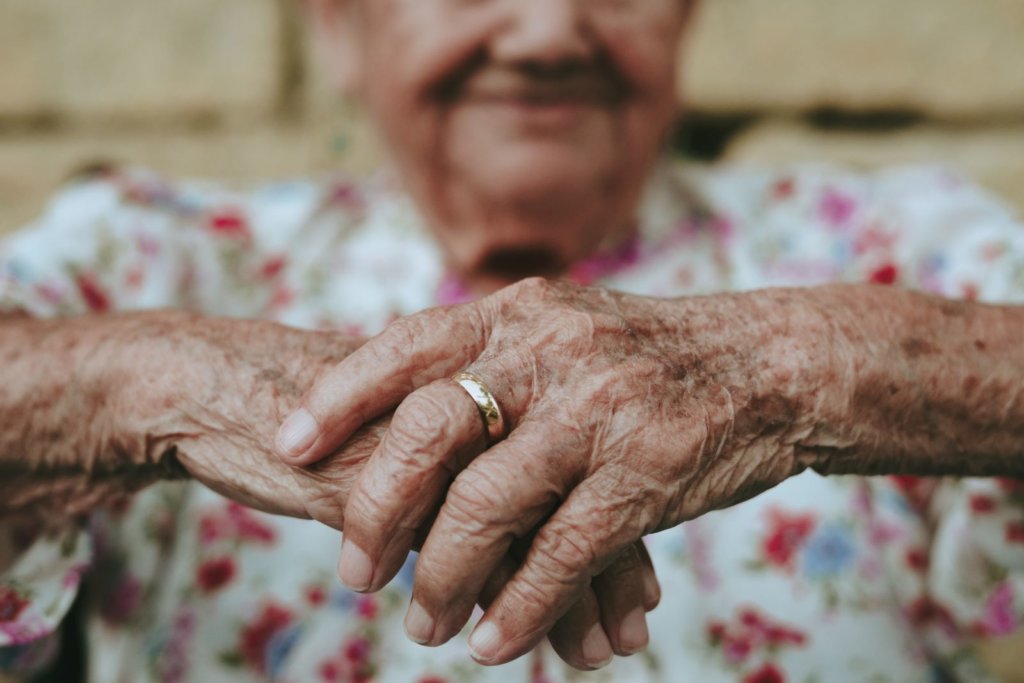
I love this lady’s hands. There’s so much here. Photo by Eduardo Barrios on Unsplash
Your body is a vessel not to be controlled but cherished. I know, for some that’s easier said than done. I get it – I’m subjected to the same messaging as anyone else, but for today, there’s something sweet about tracing the lines of my body and recalling this experience and that. In some ways I feel like a soldier recently returned from war, recounting what happened. You can do that with scars. There is often a story to tell.
There’s an honor to be in this body, to show the evidence of a life with trials and tribulations. There’s physical evidence that I’ve been through things and I’m still here. I’m proud of that.
At 37, I’m still young, but I’m not that young. No one would mistake me for a metaphorical spring chicken. And yet, instead of hiding my age, I’d like to approach each passing year not chasing my youth or lying about how old I am. I’d rather appreciate my age for the unique beauty it gives me. I didn’t think I would ever say that but here I am. Instead of fighting my body, I’m appreciating it for every scar, wrinkle, and fold. This body has been through so much and I don’t want to keep pretending otherwise.
Today anyway, I’m valuing this physical form for the way it currently looks and that to me is a miracle, one that I want for you too.
I dream of a world where we appreciate our bodies as they are. A world where we find our various scars exotic and beautiful because they reveal the road map of our lives. A world where instead of trying to reclaim our youth, we embrace the bodies we currently have with pride.
Another world is not only possible, it’s probable.
In 12-step communities there’s a saying, “You’re only as sick as your secrets.” When I first heard the expression, I thought it meant secrets, along with the things you’re ashamed of, and/or the emotions and memories you’re trying to repress, will drive you to act out in your addiction. While that’s true, I’ve also learned recently that secrets can make you physically sicker. I don’t mean the stomachache when you’re hiding something from your best friend. I mean arthritis and cardiovascular issues.
In a meta-analysis, meaning a study that looked at numerous other studies, Marcus Mund and Kristin Mitte found those who repressed their emotions had significant associations with cancer and high blood pressure. There’s also a study from 1999 when Dr. Joshua Smyth assigned asthma and rheumatoid arthritis patients to write either about the most stressful event of their lives or about emotionally neutral topics. He and his colleagues found the patients who wrote about stressful life experiences had clinically relevant changes in health status at four months compared with those who wrote about emotionally neutral topics. The gains were beyond those attributable to the standard medical care that all participants were receiving, according to the authors.
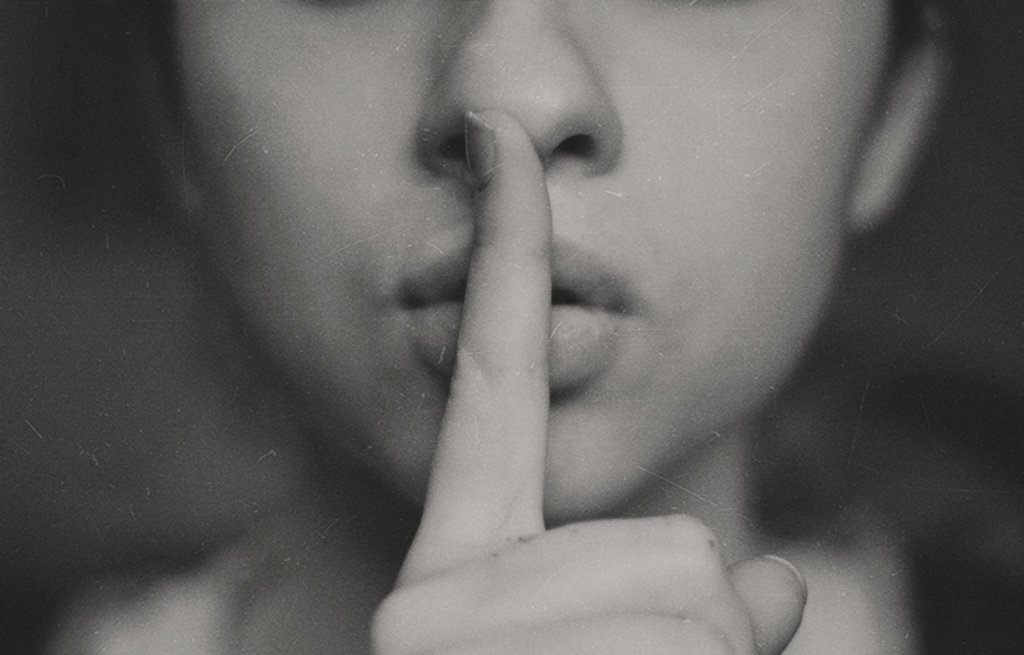
Expression, not repression. Photo by Kristina Flour on Unsplash
Meaning, just by writing about stressful events, by sharing their secrets, patients with asthma and rheumatoid arthritis were clinically, measurably, better off than people who kept their thoughts and feelings bottled up. The effects may have lasted longer than four months, but Smythe and his colleagues didn’t follow up to find out.
As someone who is extremely psycho-somatic, meaning I have a strong link between my mind and body, I already know this information. However, what is news to me is the measurable effects. Not only do people feel better emotionally when they express their internal landscape, but researchers have demonstrated their blood pressure drops, their heart rate decreases, and pain levels decline. That’s really freaking cool if you ask me. I love when science confirms something I know to be true anecdotally.
Why am I writing this post? I think it’s because there are likely people out there saying to themselves, “The past is the past. I’m over it. I don’t need to talk about it. Why dwell on something you can’t change?” For those people, my response is, “You can’t change the past, but you can change how it’s affecting your present. How it’s impacting your body. Expressing a stressful event, even if it’s just in a journal, will help you feel better physically. And you don’t have to take my word for it – researchers have found that to be true as well.”
Not only researchers, but spiritual teachers. In fact, mine says, “It is natural for all living beings to search for a way to express themselves fully. Sometimes this expression takes the form of crude physical pleasure, and sometimes that of subtle psychic pleasure.” He also says, “Repression directly affects the subconscious mind. Gradually the psychic structure is severely damaged, and finally the mind is totally changed. The result is that people are inflicted with a defeatist psychology and an inferiority complex.”
That doesn’t sound great to me. I’d rather be strong physically and mentally. I want to feel happy and free. Who knew that could happen with something as simple as writing in a journal for 15 minutes?
I dream of a world where we recognize repressing feelings and past events takes a toll on our physical, mental, and emotional health. A world where we understand it’s our innate desire to express. A world where we realize we’ll feel stronger and happier if we express what’s going on for us. A world where we understand we are only as sick as our secrets.
Another world is not only possible, it’s probable.
Sometimes I have the expectation of myself that I’ll function like a robot. That no matter the circumstances, no matter how I’m feeling, I’ll be able to accomplish XYZ regardless. And if I’m not able to accomplish XYZ, then I beat myself up and make meaning from it like, “You’re so lazy.” This may sound silly, but what I often forget is that I’m a human and human beings are not robots. We aren’t able to show up the same way every day.
Something my therapist says is, “Everyone is doing the best they can at every moment and sometimes their best sucks.” Yep. I’m doing my best every day and sometimes my best sucks. Sometimes my best entails lying in bed under a pile of blankets watching terrible television because I can’t motivate myself to contact potential new clients. Sometimes my best means my bathroom mirror has flecks of toothpaste on it because cleaning it feels like too much effort.
I see this lack of respecting the natural ebb and flow of each person reflected in society. The other week I wrote about how people are turning into small children, throwing tantrums in grocery stores, and yes, it’s because many of us struggle with feeling our feelings, but I also think it’s because in the U.S. anyway, we forget we’re human and instead we’re being asked to function as if we aren’t. Your kids are home from school? You should be able to accomplish as much work as if they weren’t! Your colleague is out sick with Covid? You should still be able to meet that deadline! Um, no.
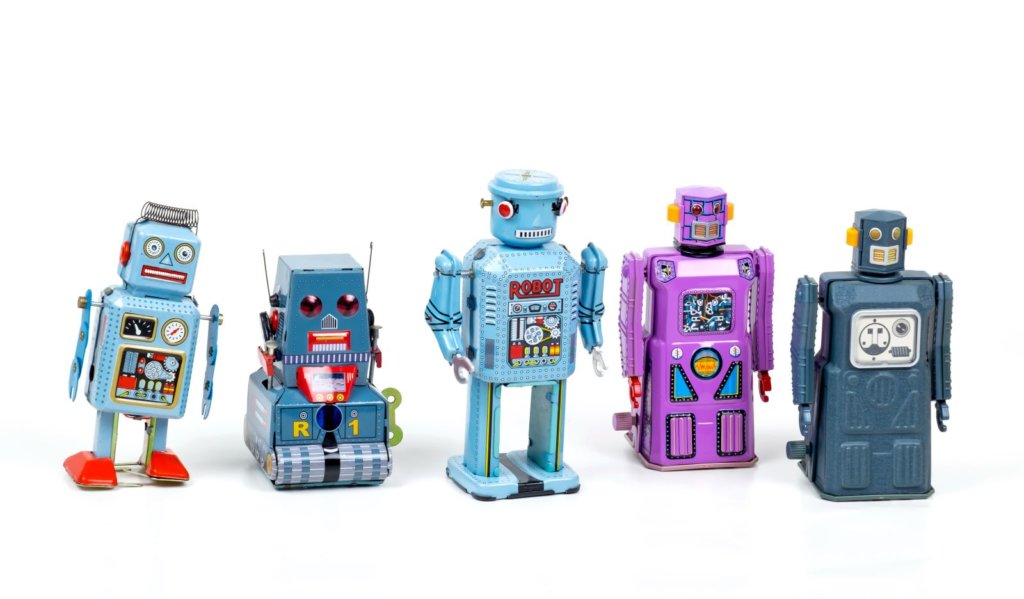
They’re cute, but let’s not aspire to be like them. Photo by Eric Krull on Unsplash
The expectation that life can or will continue as normal even when circumstances change is absurd. We are not robots and it’s not feasible to “power through” everything. Furthermore, maybe we’re not supposed to power through! Maybe we’re supposed to be smart, adaptable human beings that fluctuate day by day. This is something living with a chronic illness teaches me over and over again. Some days I can go for a swim, write for hours, clean my house, make dinner from scratch, and connect with friends. And other days I’m only capable of getting dressed and heating up a premade meal. Both happen and yet I beat myself up on the days I don’t have energy to do as much as I’d like. A lot of it has to do with internalized capitalism, but it’s also because of the expectations I place upon myself.
What if instead I treated myself with compassion and understanding? What if instead I recognized that at some point the bathroom mirror will get cleaned and inspiration will strike to contact potential new clients? Because that always happens. It reminds me of a quote from the late, great, Thích Nhat Hạnh who said, “No one is more worthy of your kindness and compassion than you are,” and also, “Real love means loving kindness and compassion, the kind of love that does not have any conditions.”
Real love for myself and others means recognizing we each have good days and bad days. It means understanding there’s a natural rhythm and cycle to life. It means acknowledging as much as society wants us to be robots, we aren’t. We’re human beings and human beings fluctuate, make mistakes, and have limitations. For better or for worse, we show up differently every day and not only is that OK, it’s natural, normal, and to be expected because again, we’re not robots.
I dream of a world where we treat ourselves with love and compassion. A world where we reduce the expectations we set for ourselves. A world where we understand our best will change from day to day. A world where we remember we aren’t robots.
Another world is not only possible, it’s probable.
Something I’ve heard before is that physical health is a privilege. When people said that, I brushed it aside because I thought they meant health is something to be grateful for, a blessing, a gift. But now, as I approach my 37th birthday, I recognize physical health is an attribute to be grateful for yes, but it’s also a privilege similar to how we talk about White privilege. Meaning, something most people don’t think about, or take for granted, unless they’re in the group that doesn’t have it.
There’s a lot to say about White privilege but to summarize, it’s the obvious and less obvious passive advantages that White people may not recognize they have. It’s moving through the world with relative ease. Swap out “White” for “healthy” and the privilege is similar (similar but not the same). This post is focusing specifically on physical health, but there is also mental health privilege.
For someone like me – a person recovering from adrenal fatigue, a sleep disorder, digestive issues, a spoonie – I’m not able to navigate the world with relative ease. I’m forever worried my small business will crumble because I can’t work full-time due to limited energy. And supporting myself with a part-time job is challenging, which I know, because I did it for years.
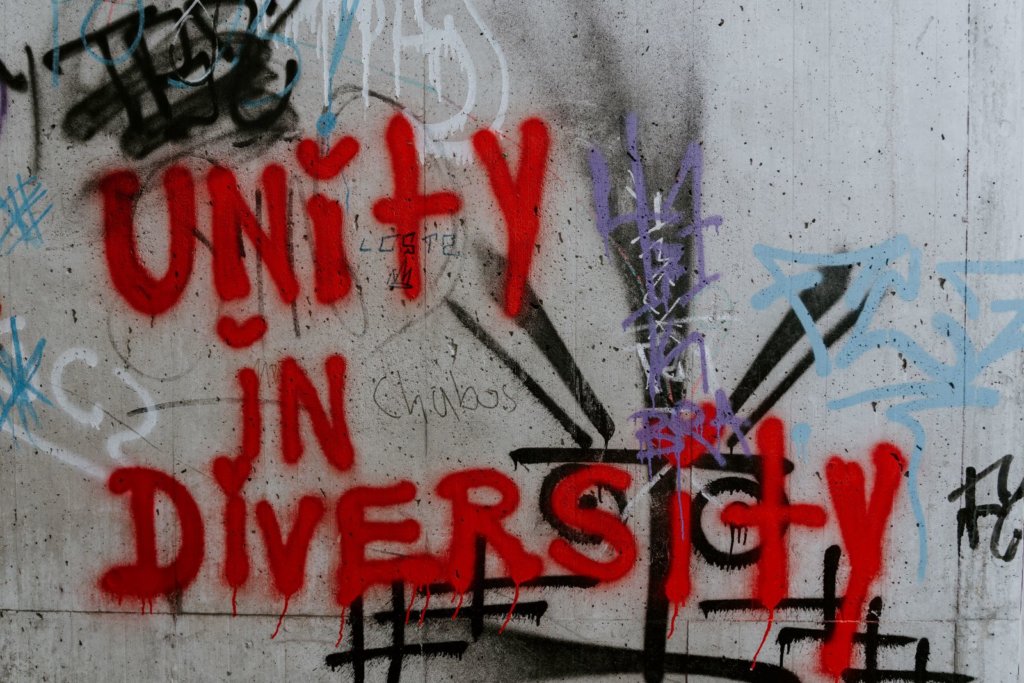
This graffiti says it all. Photo by Claudio Schwarz on Unsplash
In the days before my birthday, I’m crying because I feel like I’m getting older without ever having been young. For only three years in my 20s did I feel mildly energetic, healthy, vibrant, pleased with how my body looked and functioned. The rest of my life has been one issue after another after another. And as I’m crying about my own health challenges, I think about friends of mine, or people I know, who have chronic fatigue syndrome, fibromyalgia, Crohn’s disease, thyroid issues, etc., and I realize we’re sold this image of what is “normal,” of how our bodies are “supposed” to be. Not unlike the ideals sold to us via White supremacy like beauty standards and the body mass index.
Thinking about all of this, I really get that health is a privilege. Not everyone is given health. We aren’t all born with perfectly functioning bodies that slowly deteriorate over time as we age. No. Some of us never have perfectly functioning bodies. Some of us have to take medication and eat certain foods and take daily naps to even approach what others have naturally.
Now instead of feeling sad, I’m angry because I’ve bought into this message about an ideal body – and I’m not talking shape and size – that is literally not achievable for some people. The kicker though is our bodies can change drastically from one year to the next depending on a multitude of factors – some of which we control. I personally spend an inordinate amount of time on those factors. A soul sister tells me, “I don’t know of anyone who takes as good of care of their body as you do.” And yet, all of that care barely moves the needle on my health. And I’m lucky because I don’t live with constant pain unlike some people!
It seems to me we’re in the age of celebrating diversity with race, gender, sexual orientation, and cognitive function (in some circles). It’s time to welcome in the body too. Not only when it’s obvious, but when it’s subtle.
My spiritual teacher says, “Human society is just like a garland which is made of different types of flowers, woven together by one common thread. The overall beauty of the garland is dependent upon the beauty of each flower. Likewise, each strata of society must be equally strengthened if we are to maintain the unity and solidarity of society.”
To me that means normalizing some people have health challenges in the “prime” of their life. It means recognizing some people never experience relative ease in how they move through the world on a physical level. It means making room for and supporting people like me who have invisible illnesses. It means not relegating us to the shadows or acting like we’re an anomaly because we’re not. We’re just as normal as anyone else.
I dream of a world where we create space for all people and not act like some are part of the “in” crowd and others are not. A world where we recognize diversity is what makes human society beautiful. A world where we understand that uniqueness is normal and in turn means it’s important to create a more accessible, supportive world for us all.
Another world is not only possible, it’s probable.
My body is still stiff and sore from the car accident I was in recently. I can’t turn my neck all the way and it hurts when something as lightweight as my purse presses against my trapezius. Because all human beings have an inherent negativity bias, it would be easy for me to focus on the bad instead of the good, the terrible instead of the great.
I do think it’s important to let things be terrible without trying to fix, change, or solve them, but a personal practice for me is also seeing where things are great. Even within my own body, there are places that are peaceful, that are at ease. It’s part of the reason I love my Network Spinal Analysis chiropractor so much. With traditional chiropractors, you tell them, “My neck hurts,” and they go to that pain point to crack your neck and put it back into alignment so the pain stops. Network Spinal Analysis chiropractors, however, do something different.
They briefly and very gently touch a point on your body that’s peaceful. They go to the place of ease rather than pain. They seek to emphasize peace and grounding so that your own body amplifies that energy and heals itself. For instance, they may touch a point on my sacrum and doing so causes a deep breath that sends energy and movement to a point on my neck that hurts. Both exist within my body. I can choose to engage in “all or nothing” thinking and say, “I’m in pain today,” or I can say, “Parts of me are in pain today and other parts feel fine.”

This picture is dark AND light. It’s both at the same time. Photo by Stephen Leonardi on Unsplash
Similarly, with my novel, when I think of the piece overall, I’m quick to tell you it’s terrible, complete garbage. Except, that’s not the full picture. Parts of the novel are terrible and need to be reworked, absolutely. But there are also parts that are great. There are lines that make me laugh like this one, “After exhausting the safe topics, like complaining about work, the weather, and other news events, the table would inevitably fall silent and still like the Bay Area during Burning Man week.”
I’ve read that line numerous times, but it still makes me chuckle. So no, the novel isn’t absolutely terrible. It has some gems within it. Why don’t I focus on that?
The reality is there will always be an invitation to the fear and negativity party, but I can choose to decline. I can choose to say, “I won’t be attending.” Furthermore, I can center myself by aligning with a higher power. My spiritual teacher says over and over again if a person takes shelter in the Supreme, they need not be afraid of anything in this world. That the divine is “more courageous than the most courageous, and braver than the bravest. Those who take shelter in [the divine] are therefore bound to acquire these qualities: courage, bravery, chivalry, and so on. Once endowed with such qualities, what is there to fear?”
That’s the perspective I want to live from and that means for today, I’m choosing to view the world as mostly safe, people as mostly good, and my body as mostly fine. In other words, I’m letting things be great.
I dream of a world where we acknowledge not only the terrible things, but also the great things. A world where we understand even within our own bodies some parts may hurt while others are fine. A world where we understand rarely are things all or nothing, black or white, instead they’re much more complicated. A world where we let things be great.
Another world is not only possible, it’s probable.
Right now I’m participating in NaNoWriMo (National Novel Writing Month), which means I’m aiming to write 50,000 words in a month. For the uninitiated, that’s a novel the length of The Great Gatsby. It’s approximately 75 pages single spaced in a word processing document. I’m pretty sure this new novel I’m working on is the worst piece of writing in the known universe, but I’m pressing forward.
The advice for those writing during NaNoWriMo is to tame your inner editor. Instead of hitting the “delete” key when you think something sounds awful, just keep putting words on the page. Let the writing be bad. There’s something liberating in indulging in that mentality. To revel in it. To acknowledge, “I know this can be said better but I don’t care.”
As someone with a history of perfectionism, it’s difficult for me to stop judging end results, but that’s what I’m encouraging myself to do right now. I’m acknowledging the new novel is bad, that it will likely change a lot before I’m finished, but I’m letting that be OK. I’m not nitpicking myself in the moment and instead giving myself freedom to relax, to explore, to try new things on the page. It’s fun!
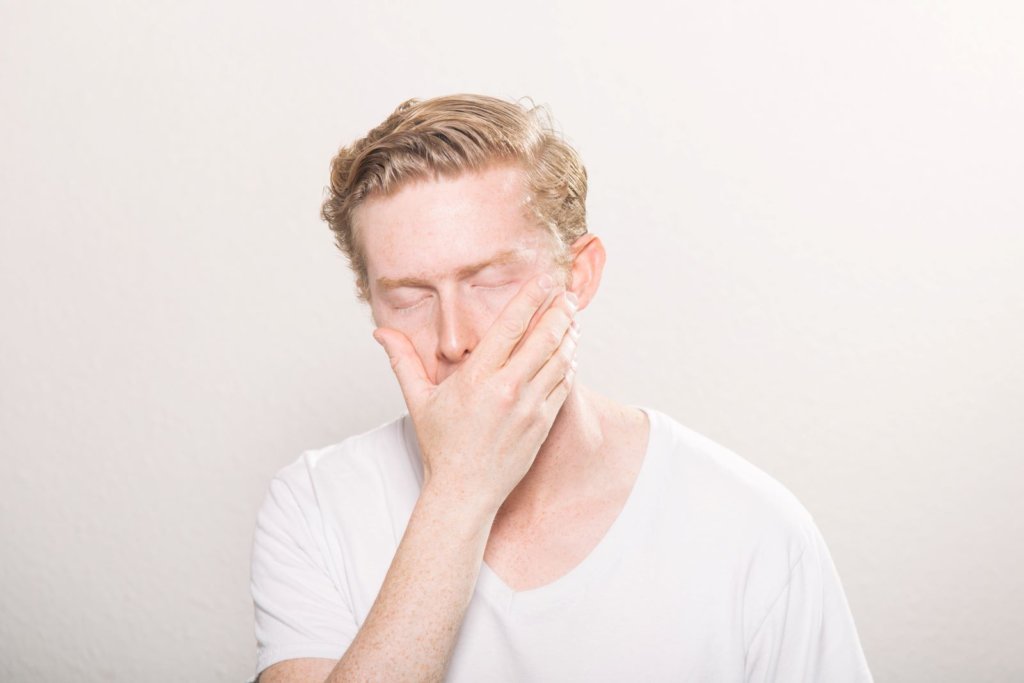
Some things will cause you to shake your head they’re so bad. Photo by Kyle Glenn on Unsplash
I notice this principle, “Let it be terrible,” applies not only to creative projects, but also to the physical body (sometimes). Headline, I’m fine, but on Saturday night I was in a car accident. While driving through an intersection, a car ran a red light and hit the driver’s side of my friend’s car. We swerved to the right and the impact jostled me so I banged up my elbow and knees against the console very, very minorly. It’s my right shoulder blade that hurts this morning from the whiplash.
I took out a tennis ball and massaged the shoulder blade but it still hurts. I don’t think anything is dislocated; it just hurts. Because I was in a car accident. And instead of rushing to fix it, change it, solve it, I said to the pain, “I’m here. I’m listening, body.” I’m letting the pain be here, I’m letting things be terrible because sometimes that’s all we can do. The body heals on its own timeframe and that doesn’t necessarily mean something is wrong.
It reminds me of this NY Times article I read a few years ago where an American woman had a hysterectomy in Germany. When she asked about painkillers post-surgery, her medical team said she’d be given ibuprofen and that’s it. When she talked to one of her doctors about it, he said, “Pain is a part of life. We cannot eliminate it nor do we want to. The pain will guide you. You will know when to rest more; you will know when you are healing. If I give you Vicodin, you will no longer feel the pain, yes, but you will no longer know what your body is telling you. You might overexert yourself because you are no longer feeling the pain signals. All you need is rest.”
It confounded her, but it turned out her doctors were right. She didn’t need painkillers – she needed rest and patience. She let things be terrible, she let her body feel terrible, and that was her wisest course of action. For this month I, too, am letting things be terrible in more ways than I anticipated, and that perhaps is a greater accomplishment than writing the worst novel the world has ever seen in the course of 30 days.
I dream of a world where we let things be terrible sometimes. A world where we let our creativity flow without any hindrance. A world where we check our self-editors at the door. A world where we let ourselves feel pain when it arises because it provides us with important information to guide our lives and direct our attention.
Another world is not only possible, it’s probable.
On Wednesday, I had three personal calls, a work call, went grocery shopping, had my hair cut, walked three miles getting to and fro, wrote an article, washed all my dishes, and made dinner from scratch. By the end of the day, I was completely zonked and chose to bail on my evening Zoom plans. Why? Because I’m a spoonie. I like to pretend I’m not a spoonie, but I’m a spoonie.
For those of you unfamiliar with spoon theory, it’s a metaphor coined by Christine Miserandino as a way to describe what it’s like living with lupus. While out to eat with a friend, Miserandino used spoons to represent the amount of energy she starts each day with. While engaging in different tasks throughout the day, a spoon is taken away. For instance, cooking is one spoon, washing dishes is another spoon, laundry is another spoon, etc. And then when all the spoons are gone, they’re gone. There are no reserves to “push through” and take the dog for a walk because the dog needs to be walked, for example.
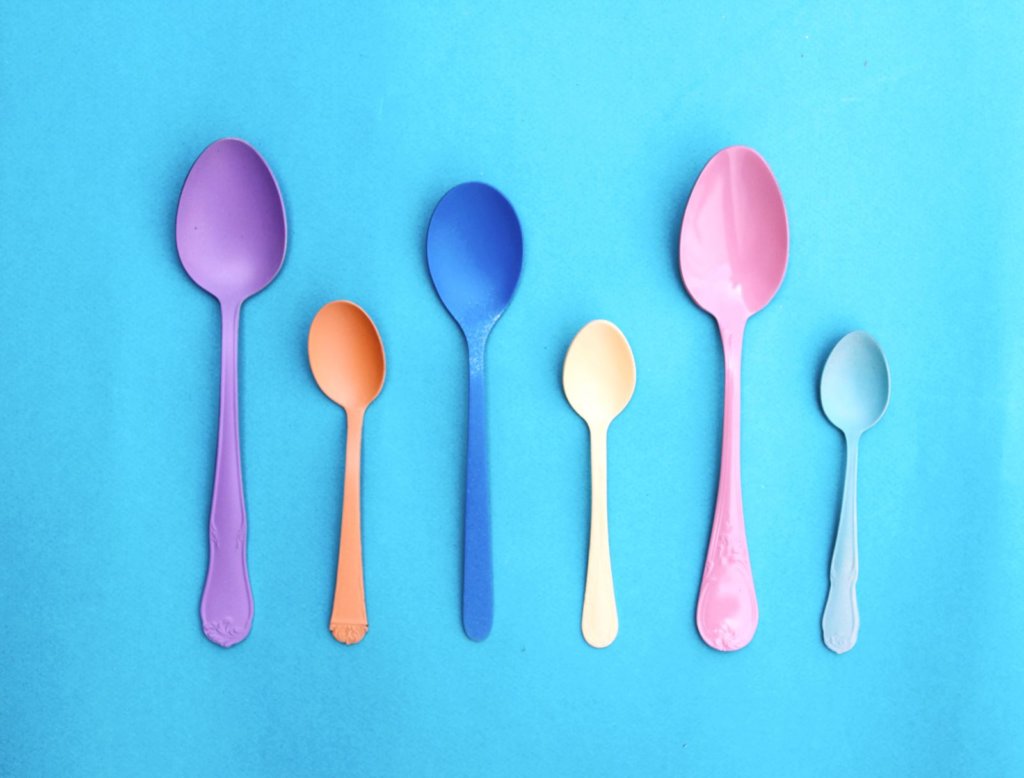
Spoonies, like spoons, come in all shapes and sizes. Photo by Dstudio Bcn on Unsplash
That’s me. Not that I have a dog to be walked, but still. When my energy is depleted, it’s depleted and I can’t force myself to do anything else. But I forget this about myself. I think I can accomplish more than I actually can. When I wake up and I feel fine, not even energetic, just fine, I start doing a million things because I finally have the energy and motivation to print out the return label for a package, or refill my spice jar, for instance. But then after doing things I’ve put off, plus the normal life things, I get to the end of the day and struggle to feed myself. Ay caramba.
I think wrapped up in all this is internalized capitalism. To internalize capitalism means to equate productivity with self-worth. It also means a person feels guilty for resting. That is certainly the case for me. I feel ashamed I’m not able to be “normal” like other people. That four hours after waking up my eyelids start to droop and my brain starts to shut down. I cope by taking a nap, but I don’t love that I plan my day around napping. My friends and family already know about my daily nap, but I feel embarrassed writing about it publicly. Why can’t I be like everyone else? Why can’t I have the energy that some other people have?
There are numerous answers – many of them having to do with genetics and also seven years of not sleeping well. But also life experiences. It’s unrealistic for me to think I can be like other people when we were dealt different cards. Isn’t it possible that if other people were dealt the cards I was, they’d also have what I have? I think so!
I don’t know if I’ll ever be able to shed the spoonie label, but what’s more important to me is changing my perspective. To stop internalizing capitalism to the best of my ability given I live in a capitalistic society. To value rest and self-care. To remember the trite expression that I’m a human being and not a human doing. I’m pretty sure no one else cares if I check off every item on my to-do list. Maybe I can start feeling the same way.
I dream of a world where we recognize our inherent self-worth. A world where we remember productivity doesn’t make us good and resting doesn’t make us bad. A world where we practice accepting ourselves as we are. A world where we realize the body has its own limitations and sometimes that makes us spoonies.
Another world is not only possible, it’s probable.